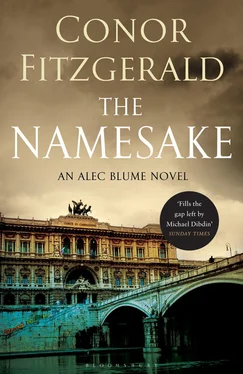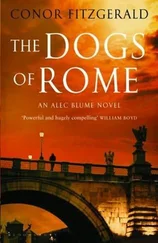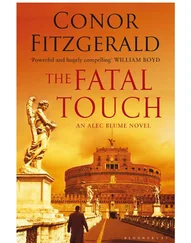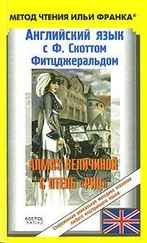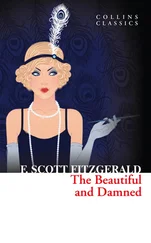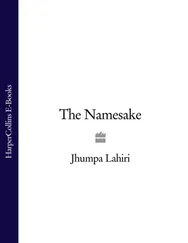Conor Fitzgerald - The Namesake
Здесь есть возможность читать онлайн «Conor Fitzgerald - The Namesake» весь текст электронной книги совершенно бесплатно (целиком полную версию без сокращений). В некоторых случаях можно слушать аудио, скачать через торрент в формате fb2 и присутствует краткое содержание. Жанр: Полицейский детектив, на английском языке. Описание произведения, (предисловие) а так же отзывы посетителей доступны на портале библиотеки ЛибКат.
- Название:The Namesake
- Автор:
- Жанр:
- Год:неизвестен
- ISBN:нет данных
- Рейтинг книги:3 / 5. Голосов: 1
-
Избранное:Добавить в избранное
- Отзывы:
-
Ваша оценка:
- 60
- 1
- 2
- 3
- 4
- 5
The Namesake: краткое содержание, описание и аннотация
Предлагаем к чтению аннотацию, описание, краткое содержание или предисловие (зависит от того, что написал сам автор книги «The Namesake»). Если вы не нашли необходимую информацию о книге — напишите в комментариях, мы постараемся отыскать её.
The Namesake — читать онлайн бесплатно полную книгу (весь текст) целиком
Ниже представлен текст книги, разбитый по страницам. Система сохранения места последней прочитанной страницы, позволяет с удобством читать онлайн бесплатно книгу «The Namesake», без необходимости каждый раз заново искать на чём Вы остановились. Поставьте закладку, и сможете в любой момент перейти на страницу, на которой закончили чтение.
Интервал:
Закладка:
Milan
Magistrate Bazza had been quite put out when Caterina announced her intention to stay in Milan and visit Arconti’s widow, Letizia, and children. She had planned the visit before he called her up one day ahead of her schedule.
‘It would be better if you did not visit the widow. It’s asking for trouble.’
‘It’s planned. Besides, you want me to lie to her about the case, don’t you?’
‘I want you to comfort her with a half truth. Why tomorrow?’
‘The family has been staying with Letizia’s parents in Tuscany. They come back this evening, and I’ll see them in the morning. My visit will coincide with their first day back in Milan.’
‘Do you expect me to authorize your hotel bill?’
‘No. I wouldn’t get the reimbursement for a year anyhow. Just sign a piece of paper saying you needed me here for two days to conclude the investigations. That way I don’t have to use my holiday time.’
‘But you were prepared to pay a hotel bill and lose a day of holiday because the widow of a murder victim asked you to?’
‘Yes.’
Bazza shook his head in disgust. ‘That’s not how it’s done.’ But as they left, he said he would look into a way of reimbursing her.
She slept badly in the hotel room, thinking about Blume and, sometimes, wondering whether to break her promise to Bazza and tell Letizia Arconti the truth. It was supposed to set people free.
The next morning, sitting in a bar eating a second pastry with a bad conscience, Caterina watched the trams and was quite impressed by their regularity. The one that would take her to the Indro Montanelli Gardens came every five minutes, but being nervous, early and full of carbohydrates to which she should never have succumbed, she decided to walk instead. Heaving her overnight bag on to her shoulder, she pushed in a pair of earphones, double-checked that incoming calls would interrupt the music, scrolled down, and selected a playlist dominated by Einaudi. A tram went clanging by and ruined the lush opening of ‘Out of the Night’. She restarted the track and set off at a brisk walk down Via Conservatorio. Now all she had to do was walk to the end, go left, then right and wait for the gardens to appear. In the middle of the busy street, she paused like the worst sort of lost tourist, and called Blume’s number yet again, which went to voice mail yet again.
The road opened into a piazzetta. To her right was a church with an ugly facade. Rome did this sort of thing better, she thought with pride. She checked her map. Basilica Santa Maria della Passione. Her appointment was simply for the morning, not at any fixed time, and she did not want to arrive too early. She crossed the cobblestones and entered the church that turned out to be far larger, brighter and more beautiful inside than the facade had led her to expect.
Caterina dipped her finger in the holy water font and touched her forehead, allowing a drop to run down the bridge of her nose. She centred herself in the aisle, genuflected briefly, politely, professionally, she hoped, and walked down towards the transept and the high altar. Blume would have been able to tell her stuff about the frescos. When it came to art, he always said he knew nothing. His parents had been experts, not him. He was just a policeman. After he had gone through this tiresome rigmarole, based more on anger and hurt than false modesty, he might relent, and if the artist was one he knew a lot about, his enthusiasm would soon displace his reticence and unhappiness. In fact, once he got going, it was hard to shut him up.
She stared for a while at a Last Supper. The red-haired Christ, seated at the end of a foreshortened table, gazed back at her. Applying Blume’s advice, she suspended her automatic reverence and looked for what was intentionally or, better, unintentionally funny in the painting. According to Blume, irreverence was the key to understanding whether a work was any good. If it made you laugh, maybe it contained subtle humour or maybe it was simply laughable. Never trust to reputation. This Christ, she reflected, looked a bit feminine and He definitely had a stoned expression in his eyes. A tripping Christ with hair the colour of copper. The apostles around Him seemed to be more professional, the efficient staff of a boss whose best days were behind Him and whose immediate future was looking pretty bleak.
But try as she might, she could not keep her reverence for the Son of God and the ancient artist at bay, and the painting ended up making her feel smaller. She went in search of a more intimate side chapel that Blume would have censured as kitsch. She sat and stared at a Virgin holding a child. Blume would thrown his head back and scoffed; Caterina bent her head forward and prayed.
Twenty minutes later, she was on her way through the Indro Montanelli Gardens, the trees and open space a relief after the unfamiliar streets. She did not trust Milanese drivers; you could never tell what they might do next. In Rome, you needed to make sure the driver had seen you, and then you were OK. Here she was not so sure.
She was still in good time. She was increasingly nervous about her meeting with Letizia and the children, if the children were there. All she had to tell them was a lie.
It was hot on the exposed white pebble path, but she soon entered an avenue of handsome straight-trunked trees with rich foliage through which the sunlight reached her fragmented and fruit-scented. She wondered what type they were.
Ardore
Blume’s search netted him a lighter, which he held triumphantly in the air as he lit it. In the flickering flame the dead man’s face took on various expressions, most of them malignant, some of them amused, some of them horror-filled. Blume ignored them all, his mind being fixed on practical considerations. The next prize given up by the corpse was a shotgun shell stuck into the bottom of his jeans pocket, where the fabric touched the groin. Clicking the lighter on and off to stop it from burning his fingers, he pushed his hands into the back pockets of the trousers, and finally, there it was, the real treasure that had had to be revealed to him in a dream, since his waking mind was not working right. Reverently, Blume pulled it out, slid the cover up, and was bathed in the white light of a functioning Nokia mobile phone. He checked it. No signal, of course, and just one bar left on the battery.
Using the lighter, he made his way back to the log table, picked up a lamp, turned it on, and enjoyed the light. He retrieved the cup from the corner of the cavern and drank. He picked up a can from the ground and hacked into it with the opener. Peeled San Marzano tomatoes. He tipped the contents into his mouth. Lovely. Now he had to leave before the battery on the phone died.
50
Locri
Basile stood next to the repaired ice-cream machine that buzzed softly as it cooled down the mixture. Tony Megale was there and had brought his own firepower, Peppino and Giacomo. Basile smiled to see Giacomo looking so grown-up and self-important now, big ’70s-style sunglasses, a flame tattoo poking up from beneath his silk shirt.
‘Are you the same little Giacomino who went missing, you had half the town out looking for you, then it turns out you were at home, playing a trick on your brother, but got so scared by all the fuss you stayed hiding for hours?’
With a curt nod, Giacomo acknowledged that this might be so.
‘You were eight at the time. What age are you now?’
‘Twenty.’
‘Twelve years.’ Basile shook his head in amazement and sadness. ‘Would you like an ice cream, Giacomo?’
Giacomo gave the old man a cool stare and declined the offer with a contemptuous click of his tongue.
Basile smiled indulgently and turned his attention to the other. ‘And you are Nando’s son. Beppe was your grandfather?’
Читать дальшеИнтервал:
Закладка:
Похожие книги на «The Namesake»
Представляем Вашему вниманию похожие книги на «The Namesake» списком для выбора. Мы отобрали схожую по названию и смыслу литературу в надежде предоставить читателям больше вариантов отыскать новые, интересные, ещё непрочитанные произведения.
Обсуждение, отзывы о книге «The Namesake» и просто собственные мнения читателей. Оставьте ваши комментарии, напишите, что Вы думаете о произведении, его смысле или главных героях. Укажите что конкретно понравилось, а что нет, и почему Вы так считаете.
